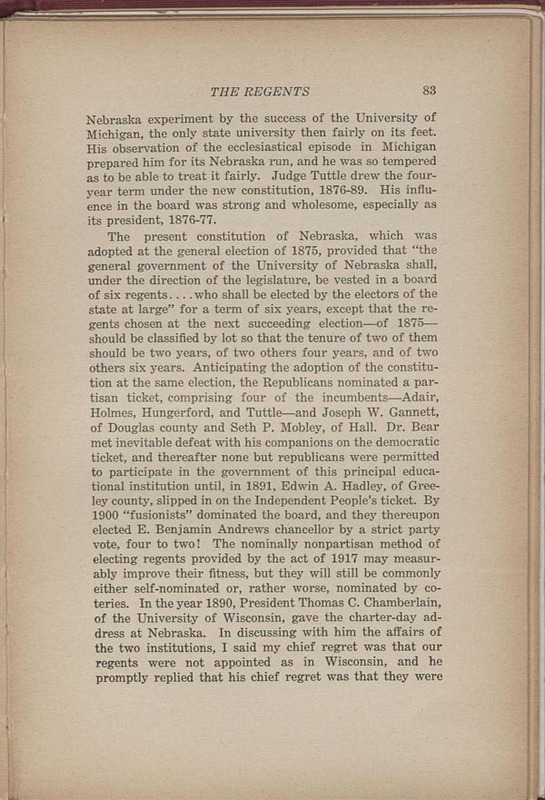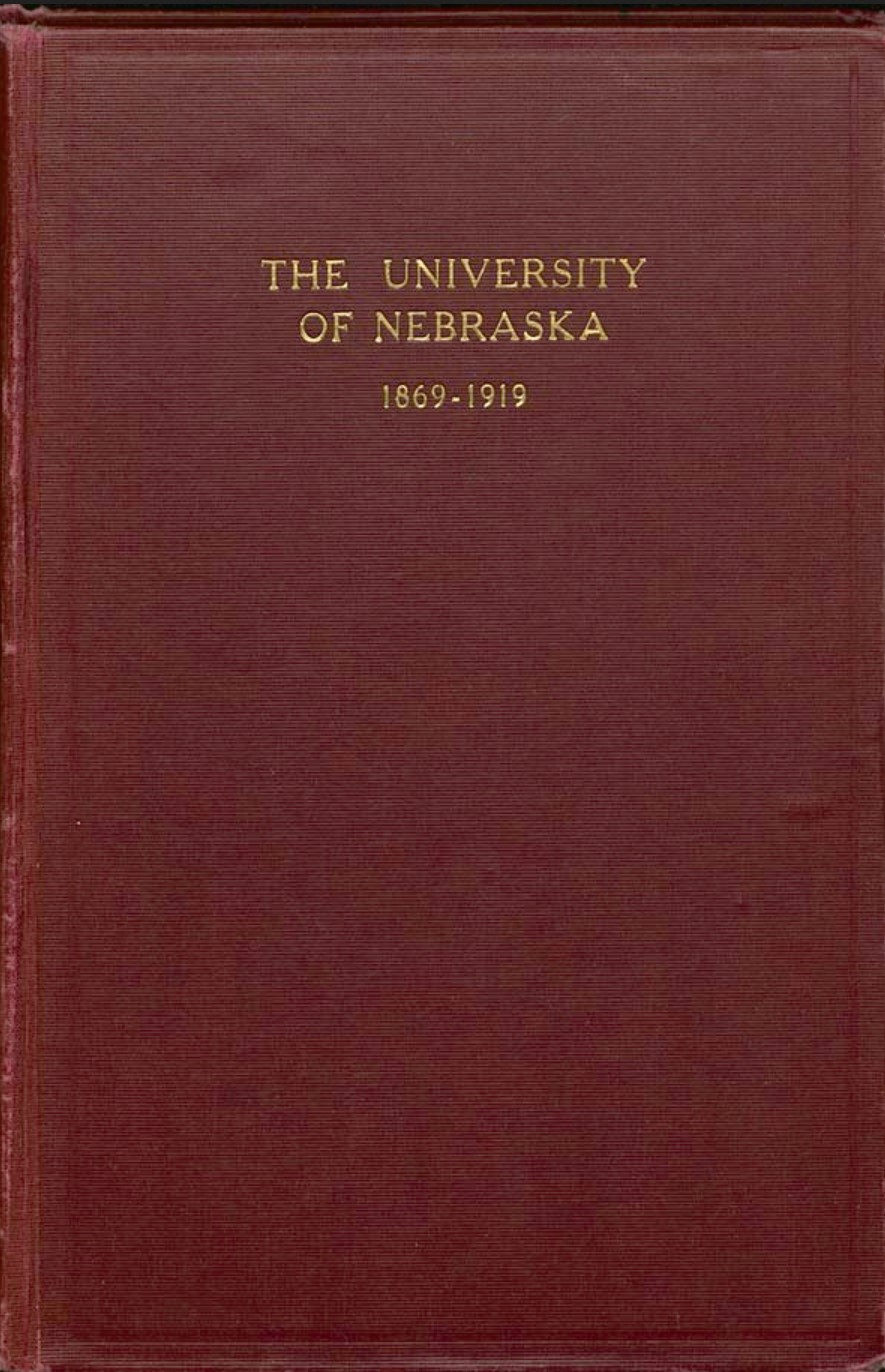087
Item
-
Title
-
087
-
Description
-
Semi-Centennial Anniversary Book: The University of Nebraska, 1869-1919
-
Transcription
-
Nebraska experiment by the success of the University of Michigan, the only state university then fairly on feet. His observation of the ecclesiastical episode in Michigan prepared him for its Nebraska run, and he was so tempered as to be able to treat it fairly. Judge Tuttle drew the four-year term under the new constitution, 1876-89. His influence in the board was strong and wholesome, especially as its president, 1876-77.
The present constitution of Nebraska, which was adopted at the general election of 1875, provided that "the general government of the University of Nebraska shall, under the direction of the legislature, be vested in a board of six regents....who shall be elected by the electors of the state at large" for a term of six years, except that the regents chosen at the next succeeding election—of 1875—should be classified by lot so that the tenure of two of them should be two years, of two others four years, and of two others six years. Anticipating the adoption of constitution at the same election, the Republicans nominated a partisan ticket, comprising four of the incumbents—Adair, Holmes, Hungerford, and Tuttle—and Joseph W. Gannett, of Douglas county and Seth P. Mobley, of Hall. Dr. Bear met inevitable defeat with his companions on the democratic ticket, and thereafter none but republicans were permitted to participate in the government of this principal educational institution until, in 1891, Edwin A. Hadley, of Greeley county, slipped in on the Independent People's ticket. By 1900 "fusionists" dominated the board, and they thereupon elected E. Benjamin Andrews chancellor by a strict party vote, four to two! The nominally nonpartisan method of electing regents provided by the act of 1917 may measurably improve their fitness, but they will still be commonly either self-nominated or, rather worse, nominated by coteries. In the year 1890, President Thomas C. Chamberlain, of the University of Wisconsin, gave the charter-day address at Nebraska. In discussing with him the affairs of the two institutions, I said my chief regret was that our regents were not appointed as in Wisconsin, and he promptly replied that his chief regret was that they were
-
Rights
-
To inquire about usage, please contact Archives & Special Collections, University of Nebraska-Lincoln Libraries. These images are for educational use only. Not all images are available for publication.



